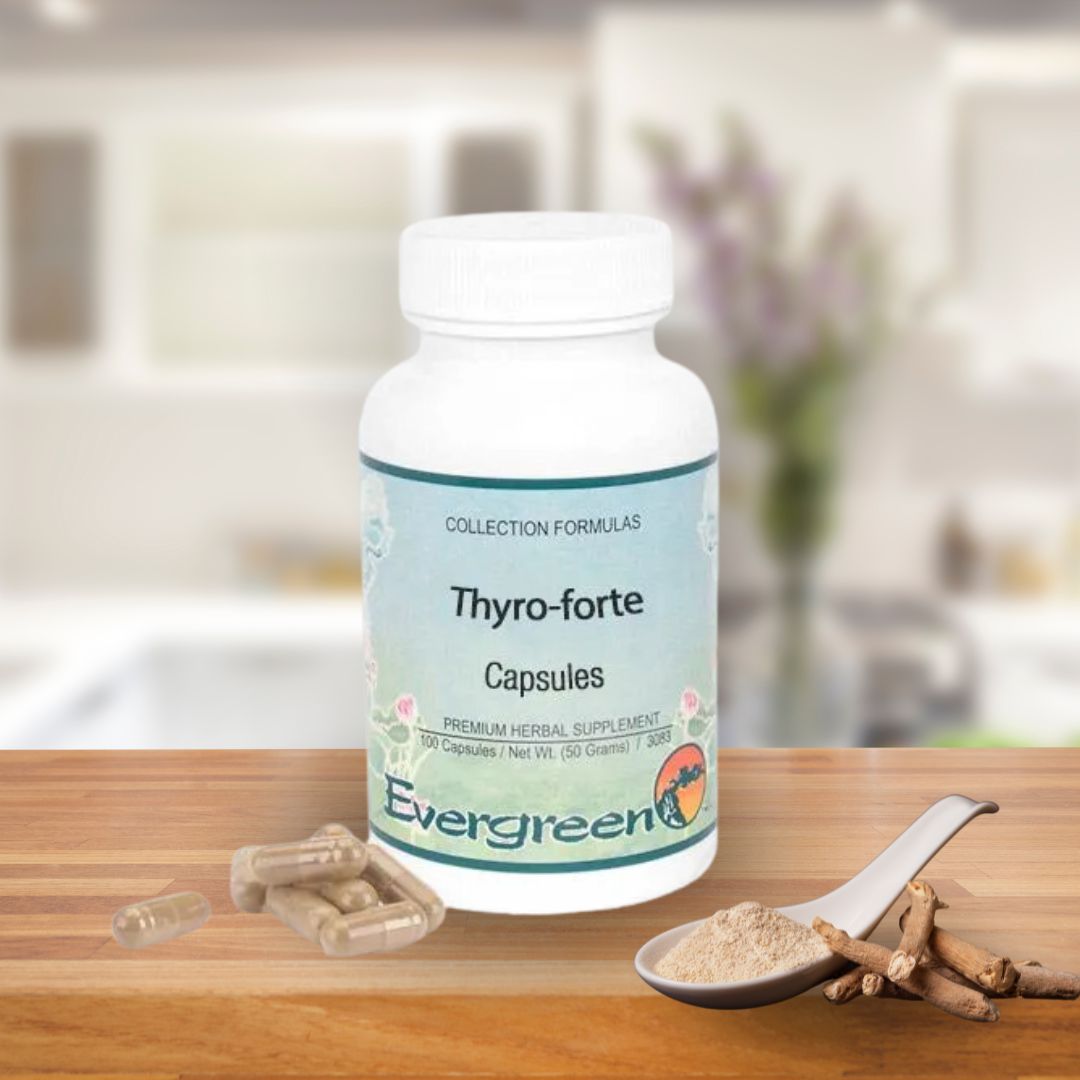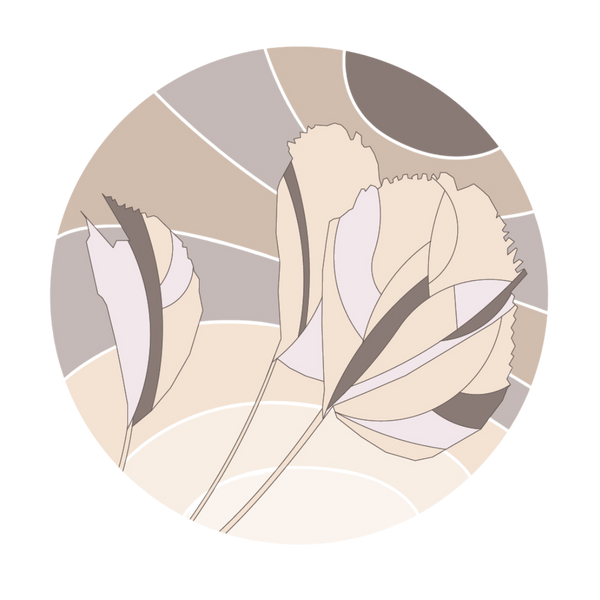ORGANIC QI
Thyro-forte
Thyro-forte
Couldn't load pickup availability
Clinical Applications
Clinical Applications
- Hypothyroidism: with fatigue, lack of energy, dull facial expression, hoarse voice, drooping eyelids, puffy and swollen eyes and face, weight gain, constipation, aversion to cold, dry hair and skin, low body temperature, decreased heart rate and blood pressure, muscle weakness or sluggishness, and other related symptoms
- Chronic thyroiditis or Hashimoto’s thyroiditis
Actions
Actions
- Regulates and restores the endocrine system
- Stimulates the production of thyroid hormones
- Increases basal metabolism and enhances energy levels
- Improves physiological functions
Cautions and Contra-Indications
Cautions and Contra-Indications
This formula is contraindicated during pregnancy and nursing.
Patients who wear a pacemaker, or individuals who take antiarrhythmic drugs [i.e., Tambocor (flecainide) and Procanbid (procainamide)] or cardiac glycosides [i.e., Lanoxin (digoxin)], should not take this formula. Fu Zi (Radix Aconiti Lateralis Praeparata) may interact with these drugs by affecting the rhythm and potentiating the contractile strength of the heart
The etiology of Hashimoto‘s thyroiditis is excessive autoimmunity causing destruction of the thyroid gland and reducing production of thyroid hormone. Therefore, during
the acute inflammatory phase of the disease when the immune system is activated by the presence of pathogens, qi tonics that boost the immune system, such as Ren
Shen (Radix et Rhizoma Ginseng), should be used with caution as this herb may further stimulate the immune system. During this acute inflammatory phase, Nourish may
be a more suitable formula as it contains herbs that nourish yin to support the thyroid gland, and herbs that clear deficiency heat to reduce inflammation.
Nutrition and Lifestyle Instructions
Nutrition and Lifestyle Instructions
- Avoid fluoride and chlorine (which are found in many toothpastes and in tap water). These elements may block the iodine receptors in the thyroid glands, leading to
reduced hormone production and eventually hypothyroidism. Drink steam-distilled water only.
Minimize intake of foods that suppress the production of thyroid hormone, such as brussel sprouts, peaches, pears, spinach, turnips, cabbage, broccoli, kale and mustard
greens.
Encourage the consumption of foods (or supplements) rich in vitamin B complex to promote the proper generation and utilization of energy.
Increase the intake of foods rich in iodine, such as seaweed. Iodine is the building block of thyroid hormone, and is essential for normal thyroid health.
According to traditional Chinese medicine, vegetables are generally cold in nature and meats are usually warm. Since individuals with hypothyroidism often have yang deficiency and cold presentations, increased consumption of meats (especially lamb) will help warm up the body and dispel cold. Other foods that are warm include lycii, longan fruit and spices such as pepper, garlic, onions, basil, rosemary, cumin, funnel, anise, leeks, chives, scallions, thyme, saffron, wormwood, mustard, chili pepper, and wasabi.
Avoid the following cooling foods: tofu, tomato, celery, asparagus, bamboo, seaweed, kelp, bitter melon, cucumber, gourd, luffa, winter melon, oranges, grapefruit, pear,
banana, papaya, watermelon, white radish, mustard leaf, potherb mustard, cactus, Chinese kale, napa, and bamboo sprout. Long-term use of cold fruits and vegetables like the ones listed above may be damaging to the Spleen. To make the property more neutral, one can add about 20 pieces of Gou Qi Zi (Fructus Lycii) when cooking.
Regular exercise helps to stimulate thyroid hormone secretion and increases the tissue sensitivity to the hormone. Exercise is also beneficial by raising the basal body
metabolism.
Induce perspiration by taking hot water baths, saunas, or steam baths.
Dosage
Dosage
Take 4 capsules three times daily on an empty stomach. However, the dosage may need to be adjusted based on age, body weight, severity of condition, and response to the
treatment.
Ingredients
Ingredients
- Poria
- Radix Aconiti Lateralis Praeparata
- Fructus Lycii
- Plastrum Testudinis
- Sargassum
- Thallus Eckloniae
- Cornu Cervi
- Cortex Moutan
- Radix et Rhizoma Ginseng
- Cortex Cinnamomi
- Rhizoma Dioscoreae
- Fructus Corni
- Radix Rehmanniae Praeparata
Rhizoma Alismatis
Share


